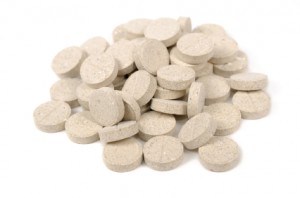Dog Dietary Supplements
 It wasn’t that long ago when dog food was made primarily of animal by-products. By-products are, of course, just a nice way to say the left over parts of an animal after it is slaughtered. This means the food isn’t all that nutritional. You can often see this in dogs with medium coats of hair, such as Golden Retriever and Pomeranian breeds, when their fur becomes dry and loses much of its color.
It wasn’t that long ago when dog food was made primarily of animal by-products. By-products are, of course, just a nice way to say the left over parts of an animal after it is slaughtered. This means the food isn’t all that nutritional. You can often see this in dogs with medium coats of hair, such as Golden Retriever and Pomeranian breeds, when their fur becomes dry and loses much of its color.
In recent years, many small start-up companies have introduced nutritional dog food made of fresher ingredients like fruits, vegetables, and fish to remedy this problem. Dietary supplements for dogs soon followed, but what do we know about whether they are good for your Boxer or Yorkie?
If your pets are currently in good health and eating a well-balanced complete dog food, there is probably no need for supplements. But if your pet has a special health issue that requires additional nutrients, supplements might be just what the thing for your pup. However, just like humans, it’s best to speak with a medical professional before starting your dog on any type of supplement. For example, if you are already feeding your pet a prescription pet food, it may already contain the ingredients you want to supplement. More importantly, the current food may have ingredients that would not function as well if certain supplements are added to your pet’s diet. It’s worth a phone call or visit with your vet to make sure the supplements will help and not hinder your pet’s health.
The most popular supplements are those designed to strengthen joints. These supplements typically contain glucosamine and chondroitin, which have proven effective against arthritis in both humans and animals.
Other common supplements include those that target skin, improve the coat, and aid digestion. TV commercials routinely urge viewers to eat yogurt with live cultures to maintain the microbacterial balance of their intestines. Some of those same ingredients are used to make probiotic and prebiotic supplement for animals to aid in their digestion as well as to keep the immune system healthy, alleviate allergies, and prevent diarrhea.
As with anything, moderation is key. Even otherwise healthful ingredients can become harmful if too much is consumed. Even though something may claim to be all natural, that doesn’t guarantee they are safe for your pet. Very little scientific study has been done to test the effectiveness, and potential dangers, of vitamin and herbal supplements on dogs and cats. Our advice: proceed with caution.
